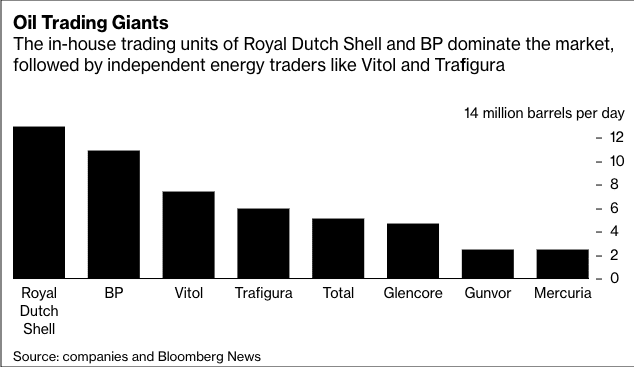BP Enjoyed Its Best Year in Oil and Gas Trading Since 2009

The oil major runs one of the world’s most sophisticated trading businesses -- which dwarfs independent commodity merchants -- complementing its oil fields, massive refineries and a huge network of filling stations. Competitor Royal Dutch Shell Plc said last week it enjoyed “one of the strongest years in recent memory” trading natural gas in 2019, with refined oil products also doing well.
“For
our trading business volatility is kind of crucial in terms of how we structure
that business,” BP Chief Financial Officer Brian Gilvary said in an interview.
The last time the business performed this well was in the wake of the global
financial crisis a decade ago when volatile energy prices helped physical
traders rake in money.
Although
Brent crude, the world’s most important benchmark, traded in a relatively
narrow range of $52.51 to $75.60 a barrel last year, at times it surged
rapidly, only to crash as quickly, as pipeline outages and attacks on Saudi
Arabia’s energy facilities upended the market.
BP
doesn’t disclose earnings of its trading unit and Gilvary declined to provide
any details. Insiders say a good year brings in at least a couple of billion
dollars in profitability. In its quarterly statement on Tuesday, BP simply said
it benefited from “higher contribution from supply and trading” in oil and from
“strong gas marketing and trading results.”
Last
year was one of the best ever for energy trading across the industry. Besides
conflicts flaring up in the Middle East, dramatic changes in ship-fuel
regulations made fuel oil a cash cow and earned Shell $1 billion last year to
mid-November. The so-called IMO 2020 rules shook up the refining and maritime
industries and caused gyrations in the price of diesel.
BP trades the equivalent of 11 million barrels a day, far more than any independent energy trader. Vitol Group, the top trading house among the independents, bought and sold almost 7.5 million barrels a day in 2018.
